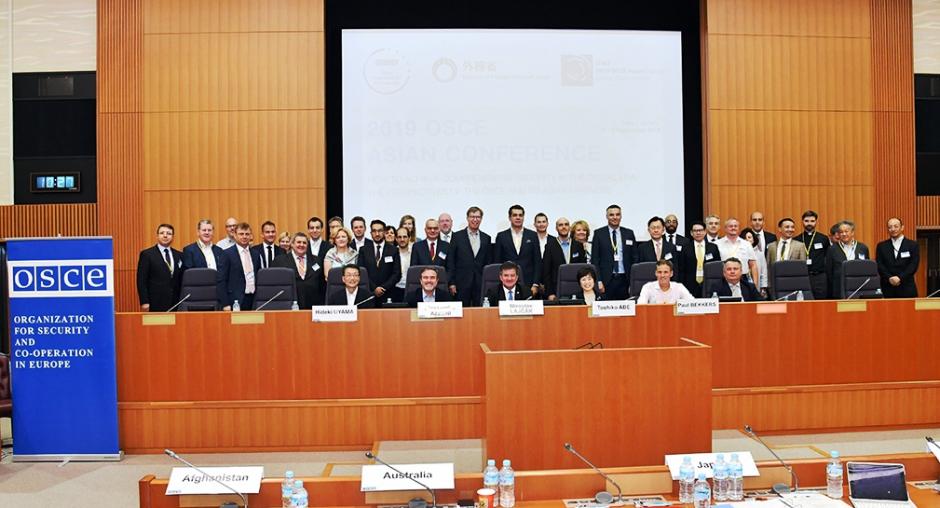Strong partnerships key for security in the digital era – main message from opening of 2019 OSCE Asian Conference in Tokyo

Tokyo, 2 September 2019 – Speaker after speaker reconfirmed that strengthening co-operation between OSCE participating States and its Asian Partners for Co-operation is key to achieving comprehensive security in the digital era at today’s opening of the 20th Asian Conference in Japan.
More than 130 political representatives and policy experts, as well practitioners from international, regional, and sub-regional organizations, academia, business, and civil society from across the OSCE’s participating States and Asian Partners for Co-operation gathered in Tokyo for a two-day conference to explore ways to tackle common security challenges arising from the use of digital technology.
“Cyberspace is a new corridor that unites Asia with Europe and there must be a new approach of co-operation between the OSCE and its partner countries,” said Toshiko Abe, Japan’s State Minister for Foreign Affairs, addressing the opening of the conference in Tokyo today.
Abe added that “if the rule of law was to be further undermined in East Asia, it would potentially have a great impact on OSCE participating States and that it is necessary for the international community to unite in strengthening digital security”.
In line with Slovakia's priority of providing for a safer future, Miroslav Lajčák, OSCE Chairperson-in-Office and Minister of Foreign and European Affairs of Slovakia, looked at what's ahead, saying that “in 2020, we will celebrate the 25th anniversary of the OSCE Asian Partnership for Co-operation". As the incoming Chair of the Asian Contact Group, Slovakia views this anniversary as a perfect opportunity to work towards a more strategic partnership, he noted.
Speaking about technological challenges in the digital era, Lajčák indicated that the OSCE and its Asian Partners for Co-operation should explore ways to enhance digital governance and promote guidelines for the ethical and socially beneficial use of emerging technology in our societies.
Alessandro Azzoni, Permanent Representative of Italy to the OSCE and Chair of the Contact Group with OSCE Asian Partners for Co-operation, stressed that "the digital security landscape has changed dramatically in recent years”. He further highlighted how the increasing use of digital technologies may pose challenges to the security and stability of societies and individuals, especially considering the scale and speed of this transformation and the consequent boom in the use of technology.
The 2018 Milan Ministerial Council Decision on the digital economy as a driver for promoting co-operation, security and growth focused discussions on the impact of the digital transformation on the economy, Azzoni noted.
Paul Bekkers, Director of the Office of the OSCE Secretary General, underlined that the conference provides an opportunity to highlight how the OSCE has begun to explore the implications of rapid technological change across the three dimensions of security: from cyber-security CBMs, the protection of critical infrastructure to freedom of expression and privacy.
The opening speakers’ remarks were followed by three thematic sessions, which covered specific areas of comprehensive security in the digital age, namely tackling ICT security risks, the digital economy as a driver for promoting co-operation, security and growth, and the risks to the safety of journalists.
The 2019 OSCE Asian Conference in Japan is proof of the OSCE‘s excellent co-operation with its five Asian Partners: Afghanistan, Australia, Japan, the Republic of Korea and Thailand.
Conference participants from the OSCE region, the Asian partners and beyond once again reconfirmed a shared interest in dialogue and commitment to the OSCE.
